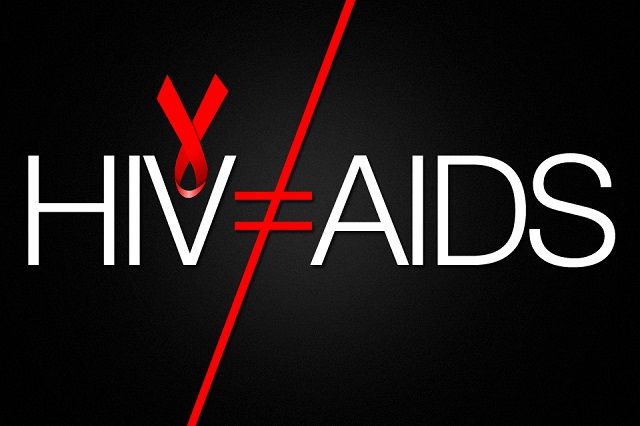
The Sunday News

Yoliswa Dube, Sunday Life Reporter
WORD on the street has it that women are more worried about getting pregnant than contracting HIV.
When talk of unprotected sex arises, the first question they ask their partner is “What if I get pregnant?” But what if you don’t get pregnant and instead contract HIV?
Sometimes, no conversation is heard about the matter — people have unprotected sex once, twice, three times and it eventually becomes the norm. Some have multiple sexual partners, putting themselves further at risk.
The discussion should be about practicing safe sex, getting tested for HIV and staying faithful to one sexual partner. Women continue to do an appearance based “examination”, judging from how the man’s skin looks and how well he dresses — if he has smooth glowing skin and is in a Polo shirt and Steve Madden shoes, then he can’t be HIV-positive.
Men also make the same mistake and assume because she is hot and pretty — she is HIV-negative. Of course it’s thanks to the life-saving antiretroviral drugs that once someone tests positive to HIV, they can live happy, progressive, healthy and fulfilling lives.
You won’t be able to tell one’s HIV status by merely looking at them. Sadly, the greater dilemma is around unwanted pregnancies and illegal abortions. It seems, people would rather engage in unprotected sex and make sure to access morning after pills the day after and not flinch over the possibility of contracting the incurable virus. They have relaxed and forgotten that HIV/Aids still exists and its prevalence will rise unless there is behavioural change.
“I sometimes engage in unprotected sex with more than one partner but I can’t even tell you why I do it. I suppose it’s in the thrill — for that moment. But I can assure you, 30 minutes after the deed is done, it eats at my conscience. I’m even too scared to get tested,” said one man who declined to be named.
According to a new United Nations report, talk of the end of Aids was premature, as the steady decline in new HIV infections stalled five years ago and that, in some areas, the numbers are rising again.
“We’re sounding the alarm,” said Michel Sidibé, executive director of UNAids.
“The power of prevention is not being realised. If there’s resurgence in new HIV infections now, the epidemic will become impossible to control. The world needs to take urgent and immediate action.”
Nearly two million people have been newly infected with HIV every year for the last five years, says UNAids. If that continues, it will be impossible to meet the UN goal of eradicating Aids by 2030.
Even though there are many well-understood ways to prevent infections — including education about the risks, supplying condoms and, most recently, drugs that can protect the partners of those who are infected — the numbers are going up, not down, in many regions.
“I’m more concerned about contracting HIV than getting a woman pregnant. I can always keep the baby even if the relationship with the woman fails but HIV is a whole different ball game,” said Nkosana Dube.
Having unprotected sex is a choice and not a mistake, he said.
“You make a conscious decision about whether or not to use a condom. In my opinion, having unprotected sex is never a mistake. Sometimes the problem is having unprotected sex with the same person for a long time. You relax and start to think had they been HIV positive; you’d have started to see some symptoms.”
Although the argument for drugs for Africa was won and 17 million people are now on treatment that keeps the virus at bay, there are 36,7 million people living with HIV, according to UNAids, meaning that fewer than half of those who need the drugs are getting them.
“I have a two-year-old son and have had two abortions already so far. The man puts so much pressure on having unprotected sex and it’s difficult to say no. What else can I do to keep my man? Obviously, I’ll agree and find other means of preventing pregnancy,” said Patience Moyo, who works as a waitress.
Negotiating for safe sex is still difficult for many women, she said.
“I’m even scared to get tested for HIV but I need to give my man what he wants. That’s how I show him that I love him.”
There is mounting anxiety among experts and activists that the epidemic may slip out of control once more.
The World Health Organisation called for new attention to prevention and warned of growing resistance to the antiretroviral drugs used to control HIV, which could mean that newer, more expensive versions will be needed.
More than 18 000 global leaders, scientists, advocates, and frontline health workers gathered in Durban, South Africa, last week for a United Nations co-sponsored international conference on HIV/Aids. Zimbabwe hosted the international conference last year.



